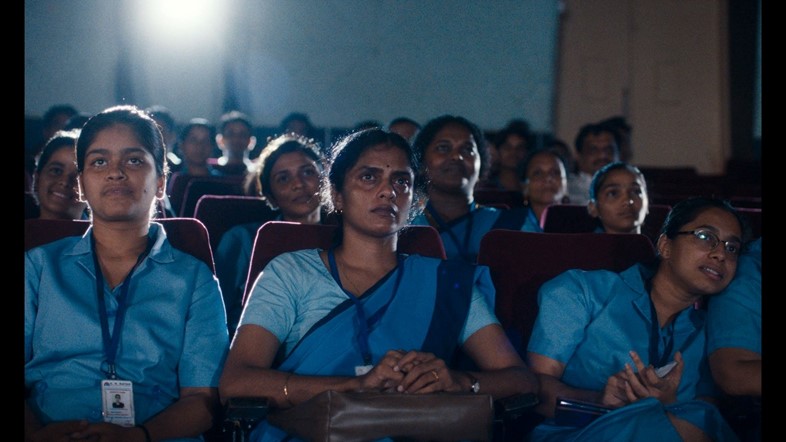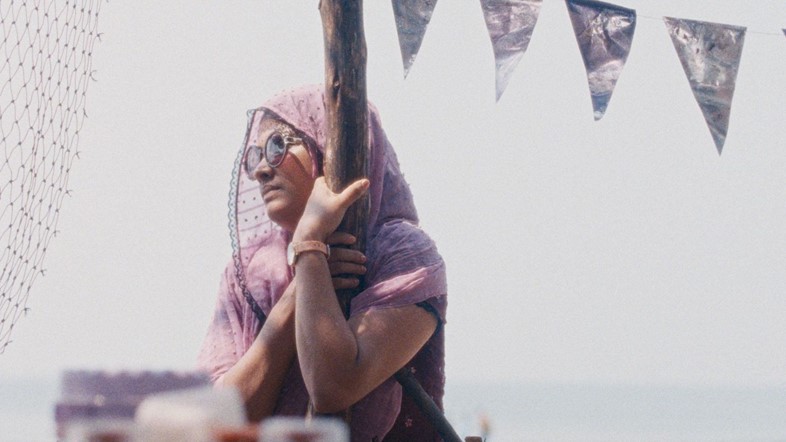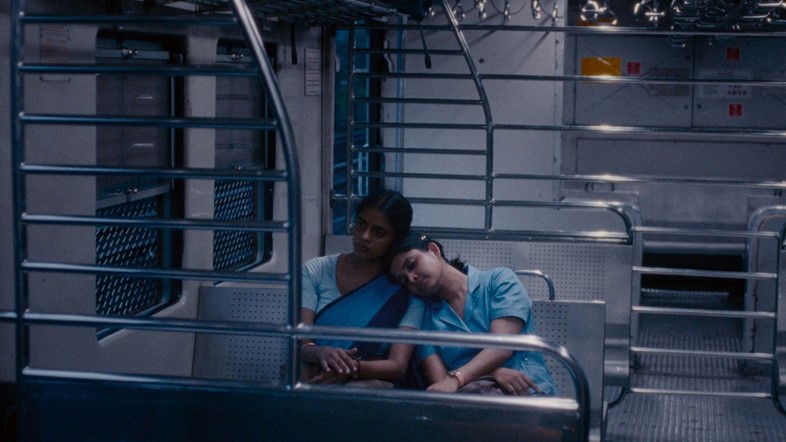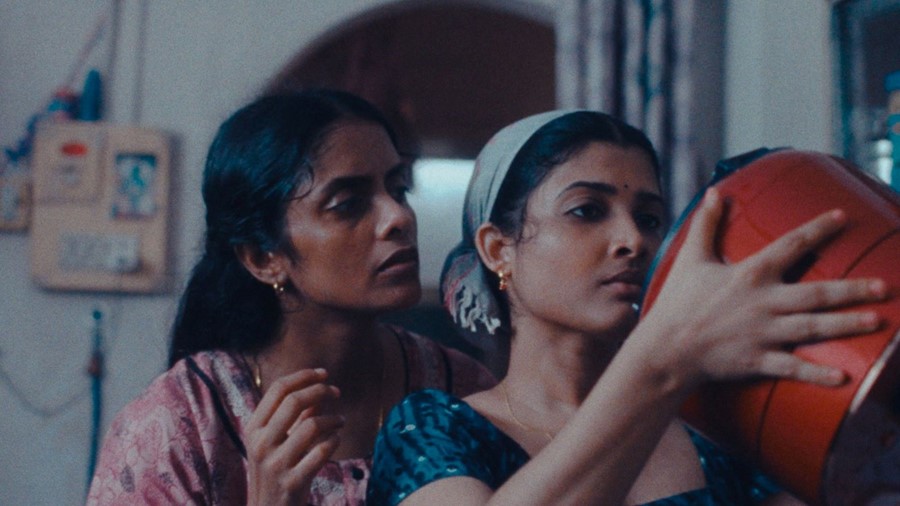Payal Kapadia’s Cannes prize-winning tale of three nurses cut adrift in the city is tender, lyrical and suffused with longing – so why have its critics dubbed it “not Indian enough”?
Screening in Cannes to rave reviews, Payal Kapadia’s All We Imagine As Light must have seemed like a lock to many as India’s pick for next year’s Oscars. But when jurors passed it up in favour of another film, Kiran Rao’s Laapataa Ladies, something about their reasoning seemed off: in essence, Kapadia’s film wasn’t ‘Indian’ enough.
“The jury said that they were watching a European film taking place in India, not an Indian film taking place in India,” said Film Federation India boss Ravi Kottarakara of Kapadia’s drama, the first directed by an Indian woman to win the Grand Prix. But who gets to decide what’s Indian, anyway? For Kapadia, the idea is suspect, to say the least. “I mean, the panel was made up of 13 men,” says the director, choosing her words carefully. (She enjoyed Laapataa Ladies, for what it’s worth.) “So if that is what being Indian [means] then I’m happy they think about my film.”
On the face of it, All We Imagine As Light doesn’t seem like the sort of film to light fires under the establishment: unfolding slowly as if in some kind of trance, it’s a gently luminous, lyrical nocturne about three nurses searching for connection in modern Mumbai. It’s also – and this is where things start to get messy – a follow-up to Kapadia’s documentary A Night of Knowing Nothing, a chronicle of the real-life student protests that took place in 2015 at the Film and Television Institute of India.
Kapadia’s own role in the demonstrations, protesting government meddling in India’s higher education system, brought criminal charges she is still fighting to this day: she offers a shrug when I mention it. “In India, nearly everyone who ever protested has some legal charges against them; it’s just the way things are,” says Kapadia. “[The] procedure is a punishment [in itself], because when you put a case on somebody they’re just going to court for many, many years.”
While the social critique was up front and centre in A Night of Knowing Nothing, here it lives in the seams of a richly imagined tableau of modern Indian life. There’s strait-laced Prabha (Kani Kusruti), whose husband works in Germany and hasn’t spoken to her in a year. Widow Parvaty (Chhaya Kadam), whose own late hubby’s aversion to paperwork has left her threatened with eviction. And junior nurse Anu (Divya Prabha), pursuing a forbidden love affair with a Muslim boy despite the disapproval of, well, just about everybody.

Clearly, these are women for whom loneliness has become part of the daily grind, their lives defined and delimited by the men in – but mostly out – of their lives. A moment of heartbreak arrives in the post, when Prabha receives a rice cooker from her husband, which she curls up on the floor with and cries. “It’s a kind of last goodbye, I suppose that’s the way I thought about it,” says Kapadia. “The cooker is a very weird object, from my point of view, because it’s a status symbol for middle-class women. Obviously, we eat lot of rice in India, but rice cookers are not that common. And [for] a woman, it’s like she can take care of more family members. And I thought it very well symbolised [the fact that] Prabha doesn’t have a family.” So it’s something like an air fryer in this country, then? “Absolutely! The air fryer of your country is the rice cooker of mine.
Also key in establishing the film’s twilit mood is its soundtrack’s mix of ancient and modern sounds, Ethiopian pianist Emahoy Tsegué-Maryam Guèbrou’s keening jazz refrains melting into an electronic score composed by Topshe. Likewise, the evocative sound design was instrumental in bringing the “sweaty soup” feeling of monsoon-season Mumbai to life, from the constant sudden downpours to the hum of passing traffic. “It’s that feeling of sitting at home alone at night but listening to the highway,” says Kapadia. “For me, that sound can be kind of alienating and melancholic because everything is there, but it’s so far away.”
Kapadia was born in Mumbai but attended boarding school in rural Andhra Pradesh from the age of eight. She returned to the city for a “miserable” spell working as an assistant director on commercial projects, before enrolling at the Film and Television Institute. It’s a city she has a “love-hate” relationship to this day, a passion she poured into her film from its opening frames, her camera lingering on forgotten street corners as a series of disembodied voices describe their own relationship to Mumbai. The text for the scene was sculpted through many hours of conversations Kapadia filmed with passersby, helping her feel her way into the story.

“I like what Godard said, ‘The problem is not to make political films, but to make films politically,’” says Kapadia. “There is something about not entirely having an end goal for everything that you do. I also think we really don’t know a lot, and just exposing myself to certain [situations] helps me get deeper into internalising a lot of the themes [that are in my head].”
Halfway through the film, the three women at its heart take off on a trip to the seaside that quickly takes on a spiritual charge. Prabha rescues a man from drowning, nursing him back to consciousness in a scene that moves seamlessly from sensual to ghostly. Anu plans a date with her lover, and they meet in a cave adorned with 2,000-year-old Buddhist paintings and graffiti from the two millennia since. “I wanted to give this feeling of many, many people having been here before,” says Kapadia, “and of those people who’d come and written their names on this wall. I find it so naive and sweet, this desire for permanence, to know that this relationship will be somewhere scratched on a wall in 2,000 years’ time even if it doesn’t last in the real world, somehow the memory of it [survives]. I find that really moving.”

At the end of Kapadia’s film, nothing is really clear. Are the quiet bonds of sisterhood that connect these women enough to sustain them? Whatever the future holds, Kapadia’s quiet bearing witness to lives of quiet desperation feels like an act of faith, proudly out of step with the bullish nationalism of Modi’s India – and Oscars submission boards too. “With my previous film I was shouting a lot, and nobody went to see it,” says Kapadia, chuckling softly. “So now I’m trying the opposite approach. Let’s see what works, right?”
All We Imagine As Light is out in UK cinemas now.
